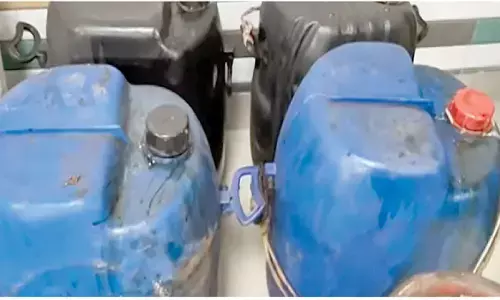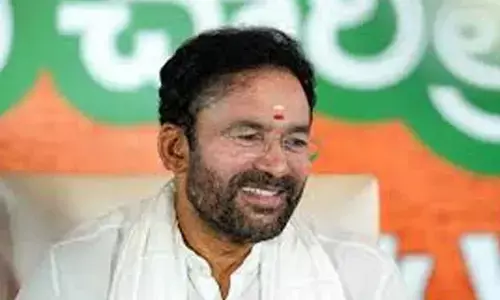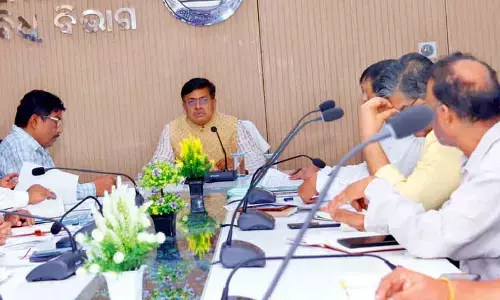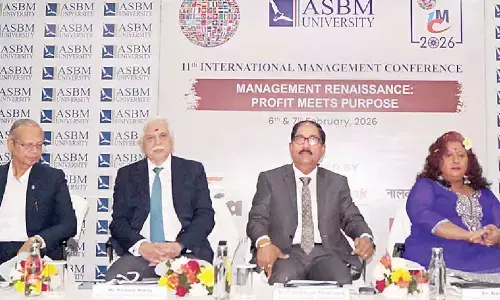CCTV could have prevented custodial murder
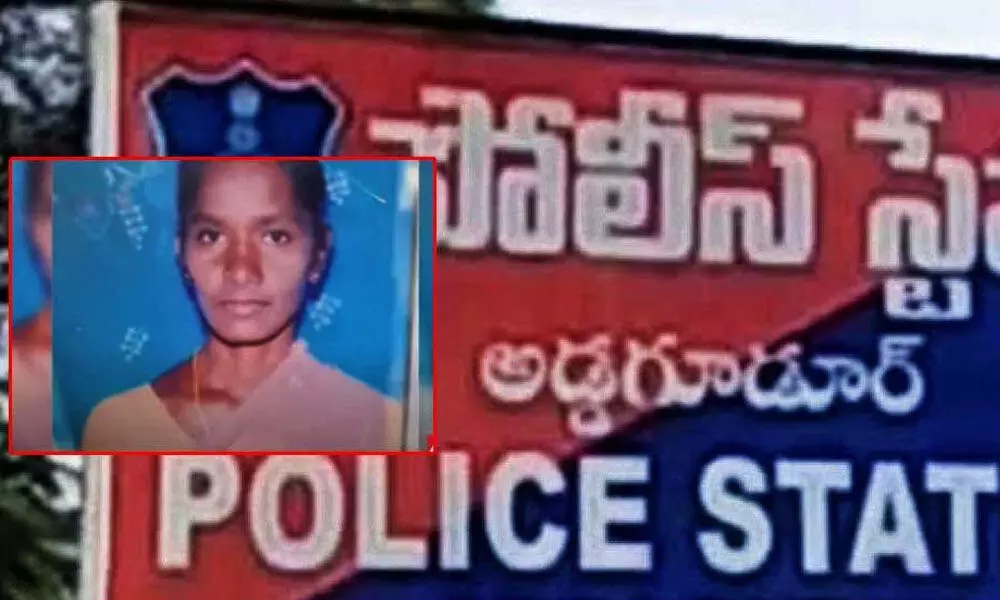
CCTV could have prevented custodial murder
For the first time, the Telangana High Court asked Telangana Government why it has not installed CCTV cameras in police station, where an alleged custodial murder of Dalit woman took place recently
For the first time, the Telangana High Court asked Telangana Government why it has not installed CCTV cameras in police station, where an alleged custodial murder of Dalit woman took place recently. In a PUCL's PIL the High Court asked the police department why it had not installed CCTV cameras in the station despite a Supreme Court order to this effect.
It is reported that Mariamma, a cook in a house, was arrested along with her son Uday Kiran on the complaint of theft filed by the owner and later she died in lock-up of Addagudur police station in Yadadri- Bhongir district. There are strong allegations that the death was only due to continuous beating for four days at various places on her body.
It is worse than third degree torture. It could be a deliberate killing of a person, when she was in the control of the police. It may not correct to call it custodial death, it should be called custodial murder. Who did it is a matter to be probed. Rather one should say it should be probed on par with any other complaint of a person being beaten to death. The need is not the magisterial inquiry. This kind of inquiry will consume a lot of time and none can be assured of any concrete action within reasonable time.
A murder case has to be registered and a regular investigation to find out the culprits should be expedited. That is not happening. Still the police control the entire operation and a formal registration of criminal charge against also is becoming almost impossible. The rule of law is under a serious challenge since the inception of Constitution of India, as far as killings in police custody are concerned. The Supreme Court recently ordered installation of CCTV cameras in every place of custodial activity under the control of the police.
Supreme Court also directed to retain the camera footage for considerably longer time to facilitate the probe into the crimes in custody. But it appears no state or no police personnel have taken a serious note of this direction. It's a tragedy that the Supreme Courts' direction are going in vain in this Constitutionally governed nation.
Telangana district, Yadadri became the place for the custodial cruelty of the uniform force. This ghastly incident became controversial and sensational because the victim was a Dalit woman. On representation of the Congress leaders, the Telangana, Chief Minister K Chandrashekhar Rao has ordered an immediate inquiry and asked the Director General of Police to take stringent action against the police personnel responsible as per the law.
On the petition of Peoples Union of Civil Liberties, the Telangana High Court intervened and ordered a second post-mortem examination, if necessary, of the body of SC woman Mariamma, who died in police custody in Yadadri- Bhuvanagiri district on June 18. In a PIL, PUCL sought a direction to the government to pay the kin of the victim Rs five crore as compensation and order judicial inquiry into the circumstances that led to her death. The petitioner alleged that Mariamma died due to torture by the police. After hearing the contentions from both the sides the court ordered a magisterial inquiry into her death and asked the magistrate to submit a report in a sealed envelope.
The police stated that Mariamma, who hailed from Khammam district, lost consciousness as she was being brought to Addagudur police station on June 18 for questioning in connection with a theft. The police said they immediately took her to Bhongir area hospital, where doctors had declared her brought dead. The police, after a departmental inquiry, placed Addagudur SI Mahesh, and constables Raheed and Janaiah under suspension. This narration shows a self-contradiction. If what they explained is true, it would have not necessitated any inquiry or suspension.
The CM asked the Director-General of Police (DGP) Mahender Reddy to take all steps to bring out the truth of the incident followed by stringent action if police was proved guilty. The Chief Minister KCR said: "We will not pardon such incidents. The government will not keep quiet if anyone does harm to Dalits. There will be swift action on the matter. There should not be any delay in inquiring about the culprits of lockup death and taking stern action against them. If need be, dismiss them from the service."
Describing Mariamma's death as very painful, the CM said that the government would never support such measures. Rao also mentioned that the Telangana government would support the children of the victim, and instructed Chief Secretary Somesh Kumar to ensure that Mariamma's son Uday Kiran gets a government job, a house, and an ex-gratia of Rs 15 lakh, and that her two daughters are given a sum of Rs 10 lakh each.
The DGP was directed to visit Chintakaniki to find out the facts and details about the lockup death and to console the members of the victim's family. The CM called for a change in the attitude of the society towards the Dalits, saying; "There is a need for the society to change its attitude towards the Dalits. The attitude and behaviour of the police especially, towards the Dalits should be in favour of them and to support them….It is unfortunate that when the police machinery is making a qualitative change in maintaining the law-and-order situation, such an incident takes place," he added.
Meanwhile, the National Commission for Scheduled Castes (NCSC) has issued a notice to the Government of Telangana over the case of the death of Mariamma. The notice was issued on the orders of its Chairman Vijay Sampla. NCSC has also issued notice to District Collector and Superintendent of Police of Bhongir district, Chief Secretary of the State and Director General of Police Telangana asking them to submit a report within seven days about the facts and information on the action taken on the matter.
Whether it is magisterial inquiry or judicial probe, its value is not significant in criminal investigation and prosecution process. It will not result in framing of charges. The magisterial probe is like preliminary inquiry that might lead to decision to the road map of investigation. After the inquiry report is given, which if concluded that there was killing by torture involving the police, a regular FIR has to be booked and investigation to collect evidences should begin.
By the time the inquiry reports are filed, the incident loses its significance and memory of the people, society and government is too short. Or some other incidents dominate the scene and wrap up this incident.
There are serious issues involved in the mechanism to be adopted. Is it possible for the police to register a case of murder against their own colleagues? If they do it, is it possible to have an unbiased probe into the murder, which the rule of law demands? It is complex and will rise very conflicting questions. Hence the prevention of custodial crimes by police is considered more important.
In this context the Supreme Court directed the Centre on December 2, 2020 to install CCTV cameras and recording equipment at the offices of investigating agencies, including the CBI, the ED and National Investigation Agency (NIA), which conduct interrogations and have the power of arrest.
A bench headed by Justice R F Nariman said that states and Union Territories (UTs) should ensure that CCTV cameras are installed at each and every police station, at all entry and exit points, main gate, lock-ups, corridors, lobby and reception as also areas outside the lock-up rooms so that no part is left uncovered.
The apex court had in 2018 ordered installation of CCTV cameras in police stations to check human rights abuses. It said further that the CCTV systems must be equipped with night vision and have audio as well as video footage and it shall be mandatory for the Centre, states and UTs to purchase such systems which allow storage of data for maximum period possible, at least one year.
It also directed state level and district level oversight committees with responsible officers to check these incidents.
"Whenever there is information of force being used at police stations resulting in serious injury and/or custodial deaths, it is necessary that persons be free to complain for a redressal of the same," the SC said.
Every state and its police department should take this seriously and prevent the torture and torture caused deaths.
(The writer is Professor of Law, Bennett University and former Central Information Commissioner)


